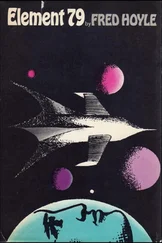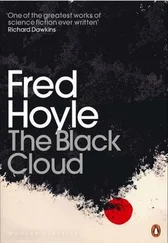Hunter took the papers suspiciously. “What is it?”
“The enzyme formula.”
“How the devil did you get hold of it?”
Fleming sighed. “Illegally. Like I have to do everything.”
“I’ll keep it, if you don’t mind,” said Hunter. He looked at it again. “Why is it crossed through?”
“Because it’s wrong.” Fleming flicked over the top sheet to show the one underneath. “That’s the right formula. You’d better get it made up quickly.”
“The right formula?” Hunter looked slightly lost.
“What the computer gave Dawnay had an inversion of what she wanted. It switched negative for positive, as it were, to pay her back for a little game I’d put her up to.”
“What game?”
“It gave the anti-enzyme, instead of the enzyme. Instead of a cell regenerative, a cell destructor. Presumably it acts through the skin and they absorbed it while they were working on it.” He picked up one of Dawnay’s hands that lay limp on the sheet. “There’s nothing you can do unless you can make the proper enzyme in time. That’s why I’ve brought you the corrected formula.”
“Do you really think... ?” Hunter frowned sceptically at the clip of papers, and Fleming, looking up from Dawnay’s hand, which he was still holding, regarded him with distaste.
“Don’t you want to make your reputation?”
“I want to save lives,” said Hunter.
“Then make up the proper formula. It should work as an antidote to the one Dawnay got, in which case it ought to reverse what’s happening now. At least you can try it. If not—” He shrugged and laid Dawnay’s emaciated hand back on the sheet. “That machine will do anyone’s dirty work, so long as it suits it.”
Hunter sniffed. “If it’s so damn clever, why did it make a mistake like this?”
“It didn’t. The only mistake it made was it got the wrong person—the wrong people. It was after me, and it didn’t care how many people it wrote off in the process. One of your trade agreements with Intel, and it could have been half the world.”
He left Hunter scowling at the formula, but obviously obliged to try it.
That afternoon the man died; but the new enzyme had been made up and was administered to the two survivors. Nothing dramatic happened at first but by the evening it was clear that deterioration was slowing. Judy visited the sick-bay after supper, and then began making her way to the main gate to meet Reinhart, who was due on the late train. As she passed the computer block she felt an impulse to go in. There was no operator on duty, and she found Andre sitting alone at the control desk, gazing in front of her. The accumulated hatred of months, the frustrations of years, suddenly boiled up in Judy.
“Another one has died,” she said savagely. Andre shrugged and Judy felt a terrible urge to hit her. “Professor Dawnay’s fighting for her life. And the boy.”
“Then they have a chance,” the girl said, tonelessly.
“Thanks to Dr. Fleming. Not thanks to you.”
“It is not my business.”
“You gave Professor Dawnay the formula.”
“The machine gave it.”
“You gave it together!”
Andre shrugged her shoulders again. “Dr. Fleming has the antidote. He is intelligent—he can save them.”
“You don’t care, do you?” Judy’s eyes felt hot and dry as she looked at her.
“Why should I care?” asked the girl.
“I hate you.” Judy’s throat felt dry, too, so that she could hardly speak. She wanted to pick up something heavy and break the girl’s skull; but then the telephone rang and she had to go to the main gate to meet Reinhart.
The girl sat quite still for a long time after Judy had gone, gazing at the control panel, and several tears—actual human tears—welled in her eyes and trickled slowly down her cheeks.
Judy took Reinhart straight to Fleming’s hut, where they brought him up to date.
“And Madeleine?” the old man asked. He looked tired and uncertain.
“Still alive, thank God,” said Fleming. “We may save two of them.”
Reinhart seemed to relax a little, and looked less tired. They took his coat, sat him in a chair by the radiator and gave him a drink. He seemed to Judy much older than she had ever known him, and rather pathetic. He was now Sir Ernest, and it was as if the act of knighthood had finally aged him. She could imagine how far in the past his youthful friendship with Dawnay must seem, and could feel him clinging on to her life as though his own were in some way tied to it. He took his drink and tried to think of the next thing to say.
“Have you told Geers yet?”
“What would Geers do?” asked Fleming. “Just be sorry it wasn’t me. He’d have me thrown out of the compound, out of the country, if he could. I’ve been saying since I was in short pants that this thing’s malicious but they all love it so. How much more do I have to prove before I convince anyone?”
“You don’t have to prove any more to me, John,” said Reinhart wearily.
“Well, that’s something.”
“Or me,” Judy said.
“Oh fine, fine. That makes three of us against the entire set-up.”
“What did you think I could do?” Reinhart asked.
“I dunno. You’ve been running half the science in this country for a generation—the good half. Surely someone would listen to you.”
“Osborne, perhaps?”
“So long as he didn’t get his cuffs dirty.” Fleming thought for a moment. “Could he get me back in to the computer?”
“Use your head, John. He’s answerable to the Establishment.”
“Could you get him down here?”
“I could try. What have you in mind?”
“We can fill that in later,” said Fleming.
Reinhart pulled a rail-air timetable out of his pocket.
“If I go up to London to-morrow—”
“Can’t you go to-night?”
“Sir Ernest’s tired,” said Judy.
Reinhart smiled at her. “You can keep Sir Ernest for garden parties. I shall get a night flight.”
“Why can’t it wait a few hours?” Judy asked.
“I’m not a young man, Miss Adamson, but I’m not moribund.” He pulled himself to his feet. “Give my love to Madeleine, if she’s...”
“Sure,” said Fleming, finding the old man’s coat and helping him on with it.
Reinhart moved to the door, buttoning himself as he went. Then he remembered something. “By the way, the message has stopped.”
Judy looked from him to Fleming. “The message?”
“From up there.” Reinhart pointed a finger to the sky. “It’s stopped repeating, several weeks ago. Maybe we shall never pick it up again.”
“We may have caught the tail end of a long transmission,” Fleming said quietly, weighing the implications. “If it wasn’t for that fluke at Bouldershaw, we might never have heard it, and none of this would have happened.”
“That had crossed my mind,” said Reinhart, and gave them another tired smile and went.
Fleming mooched round the room, thinking about what had been said, while Judy waited. They heard Reinhart’s car start and drive away, and at the sound of it Fleming came to rest beside Judy and put an arm round her shoulders.
“I’ll do whatever you want,” she told him. “They can court-martial me if they like.”
“O.K., O.K.” He took his arm away.
“You can trust me, John.”
He looked her full in the face, and she tried with her eyes to make him believe her.
“Yes, well—” he seemed more or less convinced. “I’ll tell you what. Get on the blower to London, privately, first thing in the morning. Try to catch Osborne when the Prof’s with him and tell him he’s bringing an extra visitor.”
“Who?”
“I don’t care who. Garter King at Arms—the President of the Royal Academy—some stuffed shirt from the Ministry. He doesn’t have to bring the gent, only his clothes.”
Читать дальше












